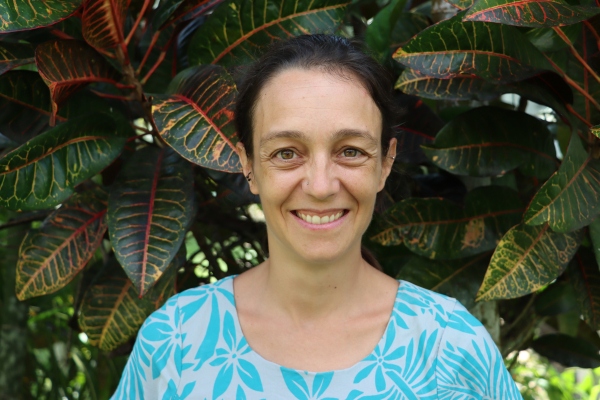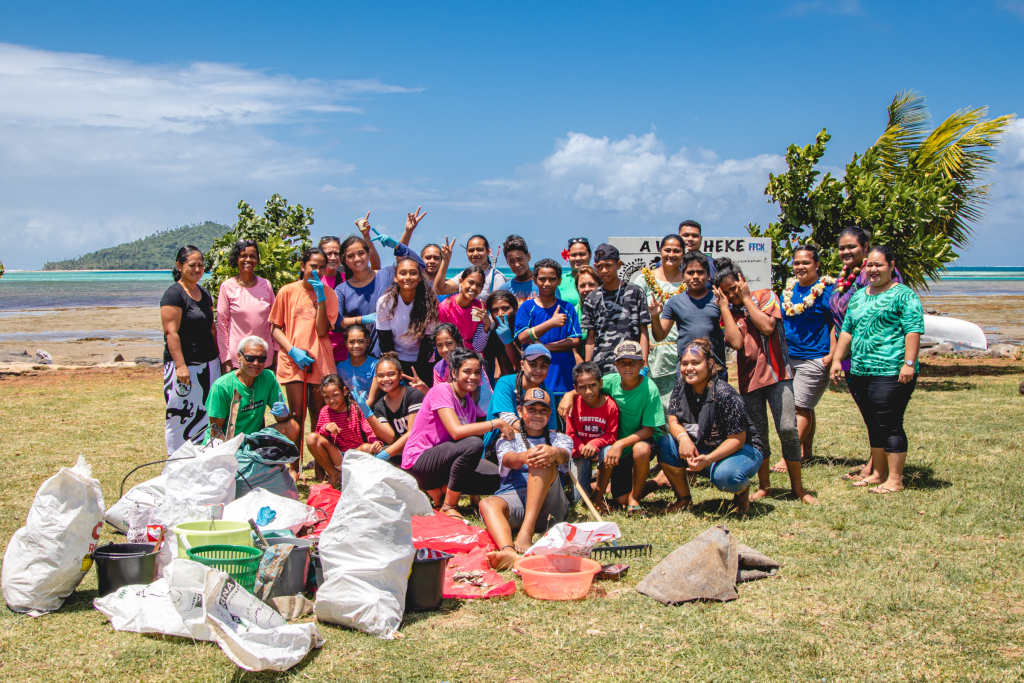
23 March 2022, Apia - The statistics about marine litter and marine pollution are frightening.
For instance, there are now more than 150 million tonnes of plastics in the oceans – including the Pacific Ocean. That's about one tonne of plastics for every three tonnes of fish. This is according to a report by the Ellen MacArthur Foundation, which has also warned that if the trend continues, plastics will outweigh fish in the oceans by 2050.
For Ms Julie Pillet, the Coordinator of the Committing to Sustainable Waste Actions in the Pacific (SWAP) project, this is a future she does not want for the Pacific region. The work her and her team execute at the Secretariat of the Pacific Regional Environment Programme (SPREP) focuses on the management of marine litter, disaster waste and used oil. They are well aware that Pacific islands are particularly vulnerable to the impacts of marine litter, due to the particular value and sensitivity of their coastal environments.

For this reason, the SWAP team is convening a virtual workshop on Wednesday 6 April 2022 at 2pm Samoan time to discuss the issue and the tools that can be used to raise awareness and to overcome it.
“We are reaching out to all SPREP member countries, territories and beyond who are interested in helping address this issue to join us,” said Ms Pillet. “It is a virtual workshop where people are welcome to join the conversation. We want our communities to understand the origins and the impacts of marine litter in order to implement and develop tools to raise awareness to address this problem. We also want to provide them with practical information on how to prepare and conduct a clean-up campaign based on shared experiences as well as providing information about the value of conducting a statistically-sound waste survey and audit.”
The “Marine Litter Workshop: Tackling marine litter: from coastal clean-up to decision making” will feature key speakers including SPREP’s Solid Waste Management Advisor, Ms Susana Takelau, Co-Founder and Programmes Director of Sustainable Coastlines, Mr Camden Howitt, Outreach Manager, International Coastal Cleanup (ICC), Ms Sarah Kollar and the CEO of The Vanuatu Environmental Science Society, Ms Christina Shaw, among others.

“Marine pollution is the result of harmful chemicals entering the ocean, polluted waste waters, industrial, agricultural and residential waste, garbage from ships, and the spread of invasive organisms. A major source of marine pollution is related to plastics intentionally thrown from shore or boats, or are unintentionally carried by winds or streams.”
The workshop will be conducted in English while an interpretation service will be provided for the French-speaking participants. It is anticipated that the workshop will be followed within two months by a practical training on how to conduct a statistically sound waste survey and audit, and contribute to regional data sharing.
To register, click: https://form.jotform.com/220739049681462

About SWAP
SWAP aims to improve sanitation, environmental, social and economic conditions in Pacific Island Countries and Territories through proper waste management”. The seven SWAP Pacific islands are Fiji, French Polynesia, Samoa, Solomon Islands, Tonga, Vanuatu, and Wallis and Futuna. New Caledonia will also receive technical support through SWAP.
The Committing to Sustainable Waste Actions in the Pacific (SWAP) Project is funded by the Agence Française de Développement (AFD) https://www.afd.fr/ and executed by the Secretariat of the Pacific Regional Environment Programme (SPREP) https://www.sprep.org/
Agence Française de Développement (AFD) implements France’s policy on international development and solidarity. Through its financing of NGOs and the public sector, as well as its research and publications, AFD supports and accelerates transitions towards a fairer, more resilient world. It also provides training in sustainable development (at AFD Campus) and other awareness-raising activities in France.
With our partners, we are building shared solutions with and for the people of the Global South. Our teams are at work on more than 4,000 projects in the field, in the French Overseas Departments and Territories, in 115 countries and in regions in crisis. We strive to protect global public goods – promoting a stable climate, biodiversity and peace, as well as gender equality, education and healthcare. In this way, we contribute to the commitment of France and the French people to achieve the Sustainable Development Goals (SDGs). Towards a world in common.
For further information please contact Ms Julie Pillet, SWAP Coordinator at juliep@sprep.org or visit: https://www.sprep.org/SWAP/sustainable-waste-actions-in-the-pacific-swap